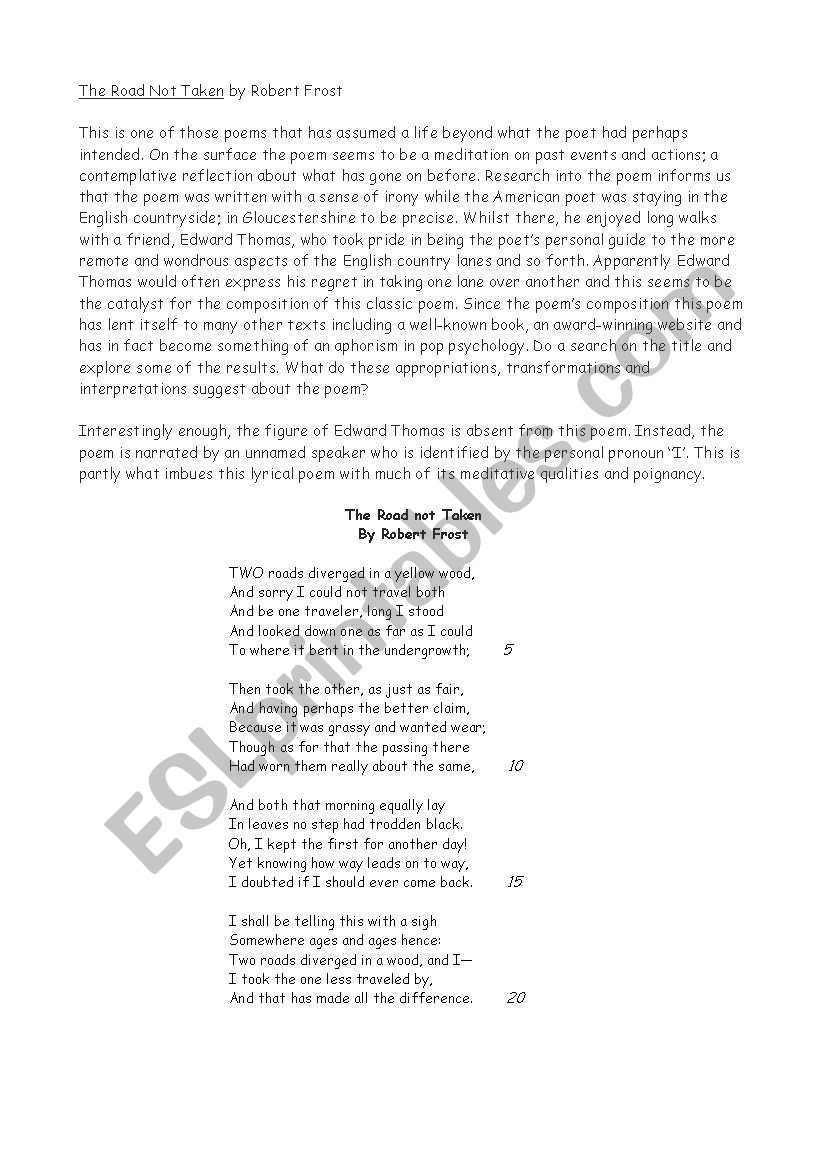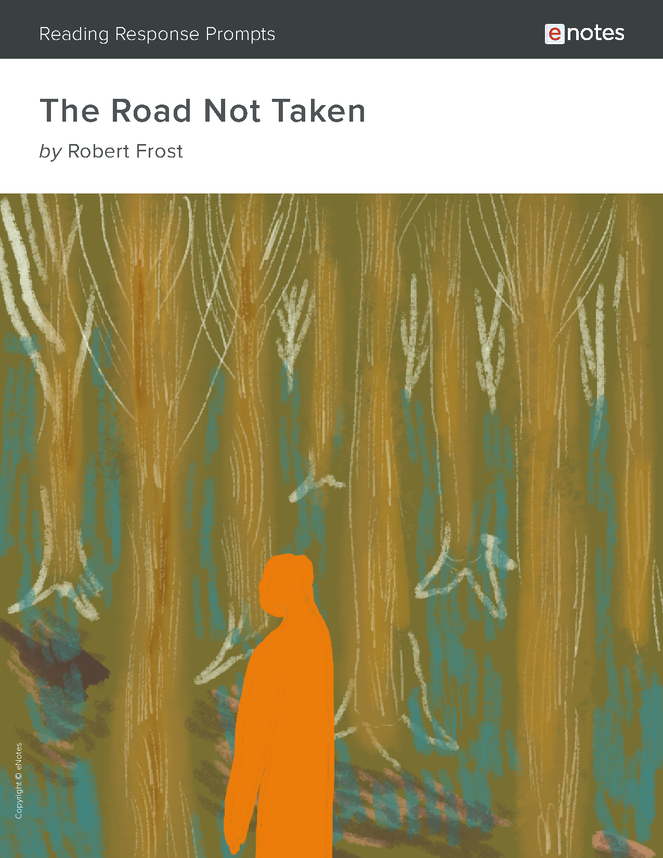
It’s just someone’s opinion or perspective and, unless so off-base as to be hurtful, it’s generally not worth getting exercised about. I tend to regard a lot of criticism, whether about literature/poetry or visual art, with skepticism. What comes to mind: Sometimes, a poem is just a poem.

“I require all our incoming poetry students-in the MFA I direct-to buy and read this book.”

The road not taken questions how to#
How to Read a Poemuses images like the mouse, the hive, the switch (from the Billy Collins poem)-to guide readers into new ways of understanding poems. Post by Glynn Young, author of the novels Dancing Priest and A Light Shining, and Poetry at Work. Photo by Daniele Zedda, Creative Commons, via Flickr.

Even with its contradictions and misunderstandings, it remains an important of the American poetic landscape. One hundred years after its first publication (August marked the centennial), “The Road Not Taken” remains a beloved American poem. The academics may have sniffed at Frost, but he was still loved by general readers. But “The Road Not Taken” fared better, and continued as a staple in school graduations. He became known as a “monster, ” Orr writes, on the basis of very little evidence. In the iconoclastic 1960s and 1970s, Frost’s reputation suffered greatly, first at the hands of his official biographer and then at the hands of academics. His looming presence in American poetry, reaching its height in the 1950s and especially with the inauguration of President Kennedy in 1961, at which Frost started to read a poem he had written for the occasion and then discarded it, reciting another (and better) one from memory. “The perception of authenticity became Frost’s trademark, at least among general readers, ” he writes. Orr notes that readers were captivated by the “thrill of sincerity” they found in Frost’s poetry. Finally, he examines the chooser, who it is who’s confronted with the choice of roads. He then discusses the choice of roads, the whole notion of choice and its place in the American psyche and the idea of roads as opposed to paths. He then analyzes the poem itself, asking what in hindsight look like obvious questions. He considers the poet, who Frost was (and wasn’t), his biography, and the biographical context for the poem. He brings a wealth of perspective, ranging from history and poetry to the science of the brain, to the subject of this poem. His first book, Beautiful & pointless: A Guide to Modern Poetry, was published in 2011 (and we reviewed it here at Tweetspeak Poetry). Orr is a poetry columnist for The New York Times Book Review and a professor at Cornell University.

And there is essentially no difference between the two roads. The poem is actually far more complex than what so many of us have heard in countless graduation ceremonies. In The Road Not Taken: Finding America in the Poem Everyone Loves and Almost Everyone Gets Wrong, author David Orr tackles this most famous poem and argues, convincingly, that it is not only the best known American poem, it is also the most misunderstood poem.Īnd it’s misunderstood for the simple reason that it doesn’t say what we think it says. Frost went on to become, more than anyone else, the “American Poet.” And his poem, “Two Roads, ” was renamed, and became “The Road Not Taken, ” perhaps the best known American poem of the 20 th century, and perhaps the best known American poem, period. Today he’s known as one of the World War I poets. Thomas eventually enlisted in the British Army, and died in 1917 in France. For his part, Thomas seemed not to realize it was meant as a joke, and took it quite seriously, as the exchange of letters between the two indicates. Frost later sent Thomas a poem, entitled “Two Roads, ” which Frost thought of as a kind of joke about Thomas’s indecision and a parody on the romantic imagination. They often took walks in the countryside together, and Frost was often amused by his friend’s indecision as to which walking route to take, and then to regret the one chosen. Frost sent Thomas a poem, entitled “Two Roads, ” which Frost thought of as a kind of joke about Thomas’s indecision and a parody on the romantic imagination.


 0 kommentar(er)
0 kommentar(er)
